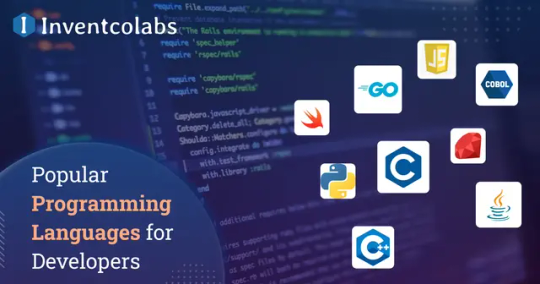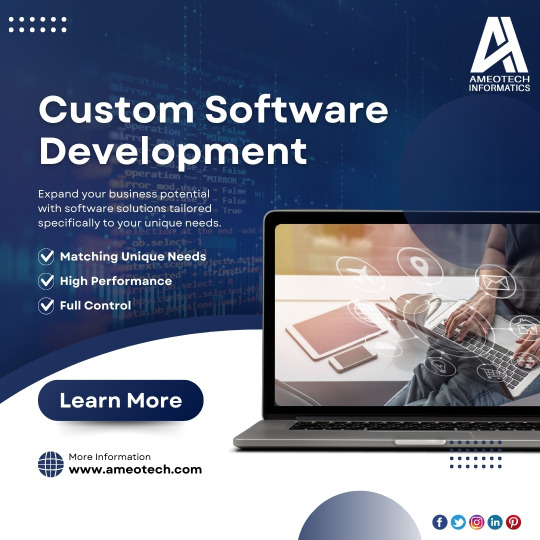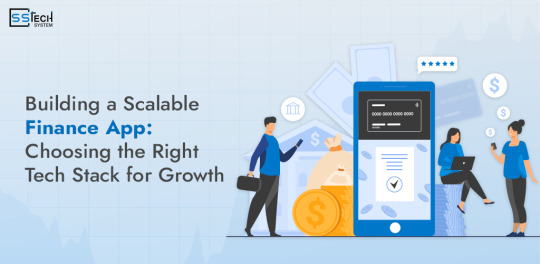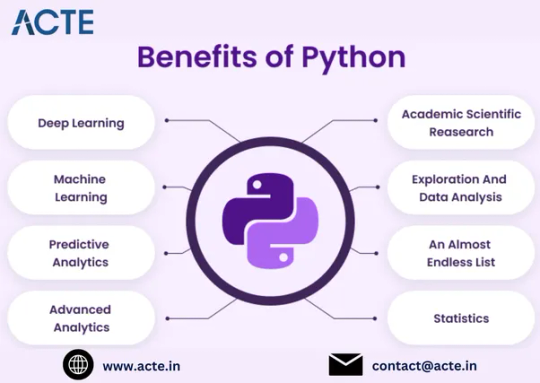#mobile app development with python
Explore tagged Tumblr posts
Text
Top Benefits of Developing Cross-Platform Mobile Apps Using Python

Discover the top benefits of developing cross-platform mobile apps using Python. Learn how Python streamlines app development, enhances performance, reduces costs, and provides flexibility for creating scalable apps across multiple platforms. Visit now to read more: Top Benefits of Developing Cross-Platform Mobile Apps Using Python
#python mobile app development#python mobile development#mobile app development with python#python mobile app framework#python for mobile apps#python mobile app frameworks#python mobile app development framework#python framework for mobile app development#cross platform app development with python#python for mobile app development#best python framework for app development#mobile application development with python#best python framework for mobile app development#cross platform app development python#Cross-platform app development#Cross-platform mobile app development#developing mobile apps using python#mobile app python framework#mobile apps with python#python cross platform app development#python cross platform mobile app
0 notes
Text
Explore the innovative software development services offered by Software Development Hub (SDH). From MVP development and AI-powered solutions to ERP software, IoT, and cloud migration, SDH delivers cutting-edge expertise for startups and businesses worldwide. Discover insights, project highlights, and tips on building user-centric applications and driving digital transformation.
#software development#web app development#mobile app development#artificial intelligence#saas development company#custom app development#product development#erp software#enterprise software#python#machine learning development#IoT and IIoT development#machine learning#api development
7 notes
·
View notes
Text

Summer Internship Program 2024
For More Details Visit Our Website - internship.learnandbuild.in
#machine learning#programming#python#linux#data science#data scientist#frontend web development#backend web development#salesforce admin#salesforce development#cloud AI with AWS#Internet of things & AI#Cyber security#Mobile App Development using flutter#data structures & algorithms#java core#python programming#summer internship program#summer internship program 2024
2 notes
·
View notes
Text
Hey there! I'm Sopgwi Yvan Armel, a 3rd-year Software Engineering student passionate about technology and innovation. I'm here to share my journey, challenges, and evolution as I work towards integrating into the professional world.
🚀 Join me as I document my daily tasks
JavaScript, typescript, Angular, flutter ,UI UX and software testing will be my focus and .I'll also be sharing helpful content to support fellow tech enthusiasts.
🎮 When I'm not coding, you'll find me gaming on FIFA, Clash Royale, and Fortnite. I'm open, cool, and speak both English and French, so feel free to connect and chat!
Let's embrace the challenges and together, explore the endless possibilities of the technological sector. Hit me up, and let's connect! 🌟
#software#100daysofcode#software engineering#programming#design#developer#success#mobile development#figmadesign#fluttercord#reactjs#online#apps#python#entrepreneur#programmer#startup#school#writing
6 notes
·
View notes
Text
Best Coding Languages to Learn in 2025 for Career Growth
Looking to boost your career in tech? Learning the best programming languages in 2025 can help you land high-paying jobs and stay competitive in the ever-evolving tech industry. From Python and JavaScript to emerging languages shaping AI, mobile app development company solutions, and web development, we cover the must-learn coding skills for career growth. Whether you’re an aspiring developer or a seasoned pro, this guide highlights the most in-demand programming languages for success in 2025.

#programming#coding#python#java#javascript#appdevelopment#mobileappdevelopment#softwaredevelopment#techtrends#digitalinnovation#mobile app development
0 notes
Text
#Backend Developers#Backend Development#Hire Django Developers#Reasons Django with Python#Python App Development#Python Web Development#Django app Development#django development#Mobile App Development Company#Web Development Company#Enterprise Development Company
0 notes
Text
Why Your Business Needs App Development Services
In today’s digital era, app development services have become essential for businesses that want to grow and succeed. Without a mobile app, you might be missing out on significant opportunities for business growth. Mobile apps are invaluable for managing tasks within a business and enhancing overall marketing effectiveness. As people spend more time on their phones than on PCs, having a mobile app is a strategic marketing move.

Investment in a mobile app is an investment in long-term business success with speeding sales and building brand. It can help you to gain maximum exposure for your products and services also helping in developing a stronger relationship with customers. Mobile apps serve as an excellent tool for marketing business in multiple ways. Mobile apps help to simplify communications by securely and directly messaging customers. There are various advantages of having a mobile app for a business like sending out messages about upcoming events, sale or sending push notifications. While sending a push notification, the messages happen to pop up on devices where the app has been installed giving a heads up about special events and chances of opening a push notification immediately after getting a notification is more compared to normal messages. When it comes to business the more we make people involved or interact with our app, the sooner they will be our customers buying our products or services. When there is an option in the app to do an In-app purchase, we are offering our customers an opportunity to shop even on the go. Basically, it gives a chance to increase and expand the customer base and interaction. If we manage to optimize the app in a correct manner, we can increase the number of downloads or installs. It gives an opportunity to put technology to work providing real value to our customers and resolving customer issues. Mobile apps can help to boost sales and revenue by boosting marketing efforts to a greater extent. In business simply by creating an app with likable features is the best way to reach your target audience. We should also have a track of customer usage of the app which will help to open new business dimensions and opportunities for growth. A mobile app should be designed in a customer friendly manner, which has features your customers will love and this results in building loyalty with customers. It improves customer engagement and can help you gain customer insights. The more we create opportunities for potential customers to reach us, the better our business will be. With mobile apps, you are making your business visible to customers at all times and you are creating a direct marketing channel. It can help you to expand your business reach to all people who use mobile devices as internet interaction, especially the young audience. The mobile app acts as a good social media platform, so major social media networks must be integrated with the app to add scope and reach of business. With all these benefits the implementation of mobile apps is considered worth to rich your business up.
#python#app development#marketing#startup#ecommerce#branding#adobe#app developing company#appdesigners#app developers#mobile app design bd#mobile app developers#youtube
1 note
·
View note
Text
Software Development Company In Mohali | Ameotech Informatics
Ameotech Informatics stands as a premier Software Development Company in Mohali, offering bespoke solutions that fuel growth and enhance operational efficiency for both enterprises and individuals. We focus on delivering personalized software that seamlessly aligns with each client’s strategic objectives, ensuring every project is a true reflection of their unique needs. Backed by a team of seasoned professionals, We specialize in custom software, mobile and web app development, enterprise systems, cloud integration, and cutting-edge UI/UX design.Beyond development, we place significant emphasis on thorough software testing, rigorous quality assurance, and robust DevOps practices, along with comprehensive maintenance and support to ensure your solution's long-term success. Every project begins with a deep dive into your goals during the discovery and planning phases, followed by meticulous design, development, and deployment—using agile methodologies to guarantee flexibility and on-time delivery. At Ameotech Informatics, collaboration is key, as we work closely with clients to transform their ideas into scalable, high-performing software. By leveraging the latest technologies and maintaining strict adherence to industry best practices, we consistently deliver solutions that empower businesses to thrive in today’s fast-paced digital landscape. With extensive expertise across a variety of industries, a dedicated team, and cost-effective pricing, Ameotech Informatics is your go-to partner for software development in Mohali. Reach out to us today for a complimentary consultation, and together, we'll bring your vision to life. For More info you can visit here:- Mobile App Development Company in Mohali, Digital Marketing Agency in India

#software development company in mohali#mobile app development company in mohali#digital marketing agency in india#python web development services#android app development company
0 notes
Text
Rubik's cube apps
I can't believe I hadn't thought until now to try out Rubik's cube mobile apps and see what they're like. I'm not necessarily interested in making a mobile app but all of them claim to have a solver feature. I tried a few and there are soooo many ads and if you try to put in the colors manually, it doesn't give enough direction and it says you've done it wrong.
My favorite lets you scramble a cube and try to solve it yourself and then allows you to get the entire solution by watching one ad. They're all kind of crappy though.
I'm not making an app per se. I'm making a reinforcement learning environment. I want there to be a playground UI and I want the training environment to be able to render something so you can see the agent do stuff. Like the Python `gym` package. But anyway, ...
If anyone has a favorite Rubik's cube-related app, send me a link and I'll check it out. I'd love to see what's out there.
#rust#codeblr#rustacean#programming#python#rubikscube#ai#cubing#software#software development#app development#mobile apps#reinforcementlearning
1 note
·
View note
Text
Finance App Development - SSTech System

Designing a scalable Finance App is essential in the constantly evolving financial technology world to ensure sustainability and meet the needs of many users in the future. The need for efficient and flexible Finance App Development strategies increases due to the need for reliable and secure financial services.
Thus, this detailed article focuses on selecting the right tech stack to create a sustainable finance app and will discuss the key aspects and technologies related to mobile finance app development. According to the report, 97% of millennials use mobile banking apps, and 89% of customers use them for financial management.
Understanding the basics of finance app development
Finance app development can be anything from a simple mobile finance app to a complicated trading application. Those programs require paramount security, performance, expansion, and friendliness of the interfaces. It is essential because developers have to guarantee solid encryption and safe authentication methods, mainly due to the high level of security financial data implies and compliance with regulations.
The elements that define a specialized finance app
User authentication and authorization: Users only access the information that they are allowed to and this can only be done by logging in to the system.
Data encryption: This includes the protection while the information is in transit, often described as encryption in flight and also when data is stored, or in other words, encryption at rest.
API Integration in finance apps: Integration with numerous financial services and outside vendors, API in financial apps.
Real-time data processing: A stable data feed is a must-have for mobile trading applications for stocks and artificial trading applications.
Choosing the right tech stack for finance app development
A basic first stage in the creation of a mobile financial app is choosing the suitable tech stack. The scalability, speed, and security of the app would be much affected by the technology choices. We’ll go over many tech stacks here and their fit for building finance apps.
1. Backend Technologies
Node.js for finance app
Node.js is fit for real-time applications like banking apps as its event-driven design is well-known. Crucially for the development of mobile banking apps and trading apps, it can effectively manage many concurrent connections. Node.js also makes it possible to employ JavaScript on the client and server sides, therefore streamlining the building process.
Python stack
Among developers, Python is a beloved tool because of its simplicity and readability. Excellent options for Finance App Development, the Django and Flask frameworks provide scalability and strong security measures. Additionally, perfect for AI trading apps and investment app development is Python’s vast data analysis and machine learning packages.
Java stack
Java offers a strong and safe space for applications in building finances. The whole ecosystem of the Spring Framework guarantees scalability and dependability by supporting enterprise-level projects. Applications with extensive business logic and great performance will find Java especially appropriate.
2. Frontend Technologies
React native finance apps
React Native lets developers create Cross-platform financial app development once and use them on both iOS and Android devices, therefore saving coding effort. While preserving great performance and a natural appearance and feel, this drastically lowers development time and expenses. React Native’s flexibility and efficiency make it ideal for developing mobile financial apps.
MEAN stack
The development of cross-platform financial apps often favours the MEAN stack. Node.js and Express.js address the backend; angular or react provide a strong frontend framework. A great choice for scalable financial applications, MongoDB, a NoSQL database, gives data management flexibility.
3. Database Technologies
SQL database
Reliable options for Finance App Development include conventional SQL databases such MySQL and Postgresql. These guarantee data integrity and dependability by offering ACID (Atomicity, Consistency, Isolation, Durability) qualities. Applications involving structured data and sophisticated transactions fit SQL databases.
NoSQL databases
Designed for horizontal scalability, NoSQL databases such as MongoDB and Cassandra provide adaptability in managing unstructured data. For uses requiring fast throughput and big amounts of data, they are perfect. Many times, NoSQL databases are used with SQL databases to provide a balanced approach to building financial applications.
4. Cloud-based Solutions
Among many benefits are scalability, dependability, and cost-effectiveness, as seen in cloud-based finance solutions. Developers may quickly expand their infrastructure depending on demand by using cloud services such as AWS, Azure, or Google Cloud. Strong security measures offered by cloud platforms guarantee the safety of private financial information as well.
5. Security Considerations
The development of a financial app depends critically on financial app security. Protecting user data depends on putting policies such as end-to-end encryption, multi-factor authentication, and frequent security audits into action. Staying current with the newest security standards and using safe coding techniques can help greatly lower risks.
6. Enhancement of Performance
Retention and user happiness in finance apps depend on performance. Load balancing, caching, and database query optimization, among other strategies, improve app speed. Applications requiring real-time data processing, like Mobile stock trading apps and Financial Market Trading apps, also depend on applying effective algorithms and lowering latency.
7. Development Tools and Frameworks
Selecting appropriate finance tools for app development helps improve output and simplifies the development process. The following are some recommended instruments and models:
API Integration in finance apps: Postman and Swagger are two tools that help finance apps integrate and test APIs, thus guaranteeing flawless communication across many services.
Mobile App Development Frameworks: Cross-platform development features of mobile app development frameworks such as Flutter and Xamarin help to enable the production of high-performance financial applications.
DevOps tools: Jenkins, Docker, and Kubernetes are among the DevOps tools that offer constant integration and deployment, thus guaranteeing effective development processes.
Hiring Finance App Developers
Regarding hiring finance app developers, it’s important to search for applicants with thorough knowledge of financial services and experience in the selected tech stack. Developers should have knowledge of speed optimization and scalability in addition to being strong in safe coding techniques. Furthermore, it is essential to have knowledge of industry rules and standards to guarantee compliance.
Development tools for future finance
With developments in artificial intelligence, blockchain, and cloud technologies, finance app development tools seem to have a bright future. These developments will keep changing the scene of building finance apps, providing developers with strong tools to produce more advanced and safe financial applications.
How do you select the ideal Tech Stack for a scalable finance application?
As you choose the tech stack for a scalable Finance App, take these things into account:
Project requirements: Evaluate requirements, including security, performance, and user experience.
Developer expertise: The technology your development team is competent in should be chosen.
Scalability: Choose technology supporting horizontal and vertical scalability.
Security: Make sure the tech stack you choose provides strong security measures.
Community and support: Technology with great community support and thorough documentation should be considered.
Conclusion
Creating a scalable finance app requires a thorough evaluation of security, performance, and user experience, among other elements. The success and long-term expansion of the app depend critically on the correct tech stack being chosen.
Whether using Node.js, Python, or Java, every technology has special benefits for developing finance apps. Using safe coding techniques, strong development tools, and cloud-based solutions can help to improve the scalability and dependability of the app even more.
#Finance App#Finance App Development#FinTech app development#SSTech System#mobile app development#b2b lead generation#business#finance apps#Finance App Developers#Node.js#Python#mobile app development frameworks#cloud-based finance solutions#React native finance apps#mobile finance app development
1 note
·
View note
Text
Kerala has swiftly grown to become a hub for innovation and IT in India. The companies are flocking to the state, from startups to tech giants. This has paved the way for a wealth of opportunities for young and talented individuals. IT is a vast industry, there are many skills available to attain for aspiring techies. With so many options, it can be a struggle in choosing the right career path for you. This blog is all you need to navigate different areas of tech careers and to find the best career that suits your strengths and interests.
#career#techjobs#digital marketing#python#programming#artificial intelligence#machine learning#mobile app development#software testing
0 notes
Text
#python development outsourcing#python development company#python developers#python development services#mobile app developers#mobile app development#Python Development Company USA#hire python app developers
0 notes
Text
#ai#replace a full stack#developer#html#machine learning#programming#digital marketing#python#viral#web development#software development#mobile app development
0 notes
Text
An Extensive Guide to Python Programming's Flexible Universe
In the coding world, Python distinguishes itself through its simplicity, flexibility, and clean syntax. Its widespread utilization across varied industries confirms its importance and efficiency. Python supports a wide array of applications, from web development and data analysis to automation and game development, making it indispensable for programmers and developers globally. This detailed guide explores Python's extensive features, highlighting its practical uses, essential tools, and relevance across different fields. For those aiming to boost their programming prowess, taking a Python course in Hyderabad provides a thorough foundation, offering deep insights and hands-on experience with this popular programming language.

Python in Web Development:
Python demonstrates significant strengths in web development through frameworks like Django and Flask. Django is renowned for its ability to facilitate rapid development and its clean, efficient design, ideal for complex website projects. Conversely, Flask is known for its simplicity and flexibility, suited for less complex web tasks.
Python's Impact on Data Science:
Python leads in data science with its vast array of libraries geared toward data manipulation, statistical analysis, and machine learning. Utilizing tools such as Pandas and NumPy allows data scientists to efficiently handle and analyze substantial data sets, extract deep insights, and conduct complicated statistical operations. The integration of Python with leading machine learning libraries like Scikit-learn and TensorFlow further bolsters its capacity to craft advanced predictive models, making it a pivotal element in data-centric initiatives.
Python for Automating Tasks:
Python excels in automating mundane activities throughout various domains, including data organization, web scraping, and system administration. Its straightforward syntax combined with a robust standard library enables developers to devise efficient scripts that simplify complex operations and reduce hands-on work.
Game Development Using Python:
Python extends its versatility to game development, supported by libraries such as Pygame, which provides necessary tools for developers to create engaging and interactive gaming experiences. Its approachable syntax and wide-ranging library options make it suitable for game developers at all expertise levels.
Scripting with Python:
The simplicity and adaptability of Python also shine in scripting, optimizing routine tasks, enhancing existing software functionalities, or crafting bespoke tools. Python's expressive programming and extensive library support fulfill diverse scripting needs effectively. To truly understand Python’s scripting prowess, enrolling in an online Python course can be very beneficial, blending expert guidance with practical projects.
Python for Desktop GUI Applications:
Python also extends beyond web and software development to creating desktop applications using libraries like Tkinter and PyQt. These enable developers to produce cross-platform desktop applications with graphical interfaces, providing user-friendly solutions for business, personal, or educational applications.
Python in the Internet of Things (IoT):
Python is apt for programming IoT devices and managing sensor data, thanks to its lightweight and adaptable nature. Its straightforward approach and substantial library support equip developers with the essential tools to efficiently develop and launch potent IoT solutions.
Web Scraping Using Python:
Python facilitates effective web scraping with libraries like BeautifulSoup and Scrapy, designed for easy extraction and manipulation of web data. These tools help in parsing HTML documents and collecting data for further processing or analysis
Scientific Computing with Python:
Python ventures into scientific computing with libraries such as SciPy and SymPy, providing sophisticated tools for numerical computation, optimization, and algebraic solutions. These capabilities are invaluable to scientists and researchers for conducting complex simulations, analyses, and addressing mathematical challenges.

The Educational Significance of Python:
With its clear, legible syntax and well-documented nature, Python is an excellent entry point into programming. Its gentle learning curve and diverse applicational scope make it a top choice for newcomers to programming and computational sciences, enhancing their analytical and problem-solving abilities.
Backend Development with Python:
Python’s adaptability also shines in backend development, powering web servers and APIs across various sectors. Its easy-to-understand code, scalability, and extensive frameworks and libraries make it the preferred option for building sturdy, adaptable backend architectures capable of handling intricate data tasks and business logic.
Python in DevOps:
Python is indispensable in the DevOps arena, automating infrastructure tasks, system configurations, and software deployments. Its legible syntax and comprehensive standard library make it an ideal tool for scripting and creating applications that boost the efficiency and dependability of software development and operational procedures.
Conclusion:
Python’s multifunctional nature and wide scope make it a standout choice for developers and programmers across diverse sectors. Spanning web and software development, data analysis, automation, and more, Python offers a vast array of tools and libraries for creating detailed and innovative solutions. Engaging with Python programming unlocks endless possibilities, fostering creativity, innovation, and success in the constantly advancing realm of technology and development.
#python course#python#coding#programming#software development#web development#mobile app development#game development
0 notes
Text
How Custom Software Development Transforms Modern Businesses: Insights from CodEduIn an era dominated by rapid technological advancements, businesses are under immense pressure to stay competitive, efficient, and customer-focused. Off-the-shelf software, while useful, often falls short in addressing the unique challenges and dynamic needs of individual businesses. This is where custom software development steps in—a solution tailored specifically to meet the requirements of a business.
CodEdu Software Technologies, based in Cochin, Kerala, specializes in creating innovative, customer-centric software solutions that empower businesses to streamline operations, improve productivity, and enhance customer experiences. In this blog, we’ll explore how custom software development is transforming modern businesses and why partnering with CodEdu can be a game-changer.
What Is Custom Software Development? Custom software development involves designing, developing, and deploying software solutions tailored to meet a business's specific requirements. Unlike generic, off-the-shelf software, custom solutions are built from the ground up to align with a company’s processes, goals, and challenges.
This personalized approach allows businesses to create tools that integrate seamlessly with their existing operations, enhancing efficiency and providing a competitive edge.
The Key Benefits of Custom Software Development
Tailored to Specific Business Needs Custom software is designed to address a company’s unique requirements. Whether it’s automating a workflow, integrating with other tools, or solving specific challenges, the solution is built to fit seamlessly into the business ecosystem.
For example, an e-commerce business may require a software system that combines inventory management, personalized customer recommendations, and a secure payment gateway. Off-the-shelf software may provide one or two of these features but rarely all in an integrated manner.
Enhanced Efficiency and Productivity Custom software eliminates redundancies and streamlines operations. By automating repetitive tasks and integrating seamlessly with existing tools, businesses can significantly reduce manual effort and focus on core activities.
CodEdu has worked with several businesses to create custom solutions that enhance efficiency. One notable example is a manufacturing client who needed real-time tracking of production cycles. The tailored solution reduced delays and optimized resource allocation, saving the client both time and money.
Scalability for Future Growth One of the major limitations of off-the-shelf software is its inability to scale. As businesses grow and evolve, their software needs change. Custom software, on the other hand, is designed with scalability in mind.
CodEdu’s solutions are built to grow alongside businesses, allowing for easy updates and additional features as new challenges and opportunities arise.
Improved Security Data security is a top concern for businesses today. Custom software allows for the integration of advanced security features tailored to the specific vulnerabilities of the organization.
Unlike generic solutions that use standard security protocols, custom software incorporates unique safeguards, making it harder for malicious actors to breach the system.
Cost-Effectiveness in the Long Run While the initial investment for custom software may be higher than purchasing off-the-shelf solutions, it offers significant savings in the long run. Businesses avoid recurring licensing fees, third-party tool integration costs, and inefficiencies caused by mismatched software capabilities.
Real-World Applications of Custom Software Development Custom software development is revolutionizing industries by offering solutions that address specific operational challenges. Here are some examples of how businesses are leveraging tailored solutions:
E-Commerce Industry E-commerce companies face unique challenges, such as managing large inventories, providing personalized customer experiences, and ensuring secure transactions. Custom software can integrate inventory management systems, CRM tools, and AI-driven recommendation engines into a single platform, streamlining operations and boosting sales.
Healthcare Sector The healthcare industry requires solutions that ensure patient confidentiality, streamline appointment scheduling, and manage medical records efficiently. Custom software allows healthcare providers to deliver telemedicine services, maintain compliance with industry regulations, and improve patient outcomes.
Education and Training Educational institutions and training academies are leveraging custom Learning Management Systems (LMS) to provide personalized learning experiences. CodEdu has developed platforms that enable online assessments, real-time feedback, and interactive learning tools for students.
Logistics and Supply Chain Logistics companies require software that provides real-time tracking, route optimization, and automated billing. CodEdu has partnered with logistics providers to build solutions that reduce operational costs and enhance customer satisfaction.
How CodEdu Approaches Custom Software Development At CodEdu Software Technologies, we believe in a collaborative, customer-centric approach to software development. Here’s how we ensure the delivery of high-quality solutions:
Understanding Business Needs Our process begins with a detailed consultation to understand the client’s goals, pain points, and operational workflows. This ensures that the solution aligns perfectly with the business’s requirements.
Agile Development Methodology We adopt an agile approach to development, breaking the project into smaller, manageable phases. This allows for flexibility, regular feedback, and timely delivery of the final product.
Cutting-Edge Technology Our team leverages the latest technologies, including AI, machine learning, cloud computing, and blockchain, to deliver innovative and robust solutions.
Ongoing Support and Maintenance Software development doesn’t end with deployment. We provide ongoing support and updates to ensure the solution remains effective as the business evolves.
Future Trends in Custom Software Development The world of custom software development is continuously evolving. Here are some trends that are shaping the future:
AI and Machine Learning Integration Artificial Intelligence (AI) and machine learning are enabling businesses to automate processes, predict trends, and provide personalized customer experiences. From chatbots to predictive analytics, these technologies are transforming industries.
Cloud-Based Solutions Cloud computing is revolutionizing software development by offering scalability, accessibility, and cost efficiency. Businesses are increasingly adopting cloud-based custom software to enable remote access and collaboration.
IoT-Driven Solutions The Internet of Things (IoT) is creating opportunities for custom software that connects devices and collects data in real-time. This is particularly beneficial in industries such as healthcare, logistics, and manufacturing.
Low-Code and No-Code Platforms Low-code and no-code platforms are simplifying the development process, allowing businesses to create custom software with minimal technical expertise. While not a replacement for traditional development, these platforms are enabling faster prototyping and iteration.
Why Choose CodEdu for Custom Software Development? CodEdu Software Technologies stands out as a trusted partner for custom software development. Here’s why:
Experienced Team: Our developers bring years of experience in crafting innovative solutions for diverse industries. Customer-Centric Approach: We prioritize your business goals, ensuring the software delivers real value. Proven Track Record: With a portfolio of successful projects, CodEdu has earned a reputation for delivering quality and reliability. End-to-End Services: From consultation to development and post-deployment support, we handle every aspect of the project. Conclusion Custom software development is no longer an option but a necessity for businesses aiming to stay competitive in today’s digital landscape. It empowers organizations to streamline operations, enhance security, and deliver exceptional customer experiences.
CodEdu Software Technologies, with its expertise in innovation and customer-centric solutions, is the ideal partner to help businesses harness the power of custom software. Whether you’re a startup looking to establish a strong foundation or an established enterprise aiming to optimize operations, our tailored solutions can drive your success.
Ready to transform your business? Contact CodEdu Software Technologies today and let’s build the future together.
#Custom Software Development#AI Software Solutions#Cloud Services#Mobile App Development#Web App Development#UI/UX Design#Quality Assurance & Testing#Front-End Development#Web Maintenance#Python Full Stack Training#Data Science Courses#Digital Marketing Certification#Artificial Intelligence Training#Internship Opportunities#Experience Certificates#100% Placement Assistance#Gap-Filling Courses#Study Abroad Preparatory Programs#Professional Development#Trending Technologies#Industry-Ready Skills#Job-Oriented Trainin
1 note
·
View note